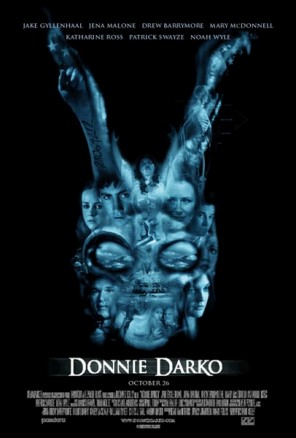as i began to read hélène cixous, the first thing that struck me was the awesome power of her writing. it’s hard to describe — it’s poetic, non-linear, complex, yet cogent enough for “the laugh of the medusa” to have become a celebrated treatise on rhetoric and feminism.
cixous’ thesis is equally forceful. she advocates feminine writing, writing that inscribes femininity. women must return to their bodies, write through their bodies — bodies that have been confiscated in the name of modesty by the “great arm of parental-conjugal phallocentrism” and become the “cause and location of inhibitions.”
“censor the body and you censor breath and speech,” proclaims cixous. she writes a particularly brilliant paragraph about how women speak in public and how their style of speech is quite different from that of men:
“listen to a woman speak at a public gathering (if she hasn’t painfully lost her wind). she doesn’t “speak,” she throws her trembling body forward; she lets go of herself, she flies; all of her passes into the voice, and it’s with her body that she vitally supports the “logic” of her speech. her flesh speaks true. she lays herself bare. in fact, she physically materializes what she’s thinking; she signifies it with her body. in a certain way she inscribes what she’s saying, because she doesn’t deny her drives the intractable and impassioned part they have in speaking. her speech even when “theoretical” or political, is never simple or linear or “objectified,” generalized: she draws her story into history.”
like speech, feminine writing must originate from, be expressed through and give voice to female sexuality. but how is that possible when the logical structure of language itself is phallocentric, set up to maintain male dominance and exclude female bodies? western culture is based on the dichotomy between binary opposites – male/female, good/evil, light/dark, language/silence, speech/writing. in each of these pairs the first term has primacy over the second.
cixous talks about freud’s description of women as being the “dark continent.” women are synonymous with darkness, otherness, africa. men are the opposite. they represent lightness, selfhood, western civilization. women are the colonized, men the imperialists. this same apartheid is imbedded in language.
given these rigid, linguistic hierarchies, whoever uses language is inadvertently taking up the position of a “man”. but cixous sees these restrictions as being historico-cultural and surmountable. to her writing must take place in the spaces in-between, without any preference for or reference to opposing terms. women are more than equal to the task on account of their “gift of alterability.” as mothers, women are naturally adept at nourishing, eliminating separation, re-writing codes: “in woman, personal history blends together with the history of all women, as well as national and world history.”
women must not remain trapped inside men’s language and grammar but explode that structure and invent a language they themselves can get inside of. this is why cixous describes feminine writing in non-representational ways such as song, milk, flight, rhythm.
feminine writing is important because “writing is precisely the very possibility of change” and since most “history of writing is confounded with the history of reason” and “one with phallocentric tradition,” women cannot change the world until they change the ground rules of writing itself.
personal aside: this article puts me in the indelicate position of having to compromise my absolute faith in the equality of the sexes. generalizations make me squeamish. i have always believed that individual differences within groups (whether they be based on gender, race, ethnicity or religion) far outweigh collective differences between the groups themselves. generalizations are therefore always reductive, always misleading. however, there is so much that i recognize in cixous’ thesis that i have to think about how male and female writing can be essentially different and how the very structure of language makes it difficult for women to express that difference.
i changed over from writing exclusively in french to english sometime in high school. as i began to write in english, i retained some of the vividness and fecundity i so cherished in french. my writing was picturesque, creative, unorthodox. however, in business school i took two classes in business english and the intensity of my writing was slowly whittled away. i started to write more simply, clearly, in a much more structured and ordered fashion. my personal style of writing was sacrificed to the god’s of lucidity and succinctness. in cixous’ words, my writing became neutered. who knows how neutered it was already on account of linguistic constraints i could not even grasp, but there was a decisive switch at that time.
cisoux’ description of how women speak with their entire bodies and how they can integrate (rather than divide into opposites) by perceiving world history as an ever-mutating patchwork of billions of personal histories like their own, is spot-on, magnificent.
it reminded me of ismat chughtai (1911-1991), the grande dame of urdu literature. she was not only a prolific writer who changed the rules of urdu wrtiting but she was also a fierce feminist who challenged ideas about what it meant to be a good muslim woman. her short story “lihaaf” (the quilt) came out in 1941. it dealt with lesbianism. she was charged with obscenity and taken to court in lahore. however, her lawyer was able to argue that public morality would remain safe as only lesbians would get the sexual drift of the story! chughtai’s seminal work is her semi-autobiographical novel “terhi lakeer” (the crooked line). in it she explores the quotidian rhythms of women’s lives, the expression of female sexuality within the phallocentric confines of cultural mores, women’s relationships with both men and other women and their struggles to self-actualize through work and career. chughtai’s writing is intimate, explosive, unflinching, voluptuous. it’s hard to contain within the structure of the urdu language. it’s feminine writing.
for my friend damien who made me read cixous.



